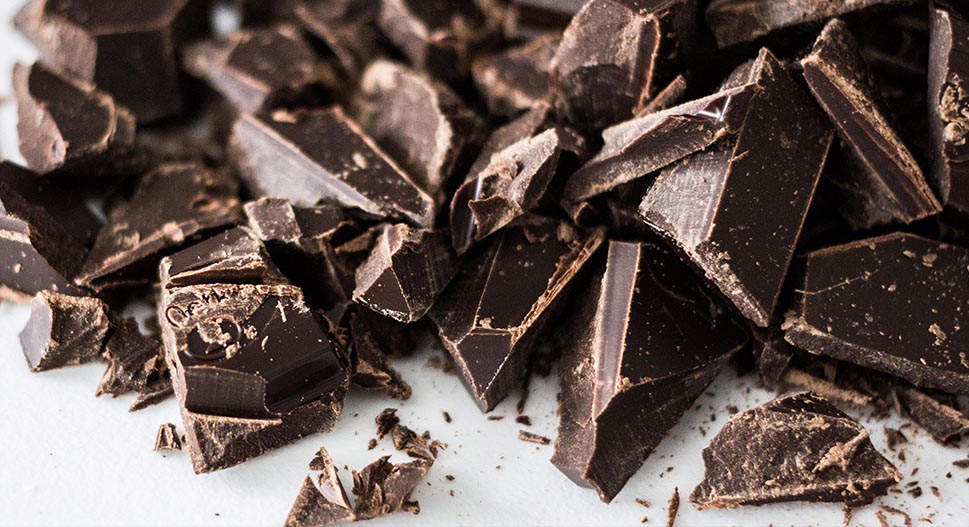
In a typical week, how many times do you feel stressed? When it comes to work and/or social pressures, do you feel like stress is now your default mode?
If you are feeling overwhelmed, you are not alone. According to the results from a recent Mental Health Foundation study, we are a stressed-out nation. 74% of UK adults have felt so stressed at some point over the last year they felt unable to cope.
The good news is that there are many proven ways in which your diet and lifestyle can help you reduce or manage your stress.
The effects of stress
Acute stress is an appropriate response to real danger. Our fight and flight response to stress is actually an evolutionary life-saver. Our bodies are well-designed to cope with short bursts of life-saving stress, but it is sustained stress, resulting from the non-stop barrage of perceived threats, that takes its toll.
Stress triggers a cascade of stress hormones. Cortisol is the primary stress hormone that plays havoc on our bodies. Flowing adrenaline and cortisol from our activated endocrine system ignite a number of physiological responses and by so doing, it shifts its normal metabolic processes into high gear and the body’s energy away from other systems, such as our digestion and immunity.

Coping with Stress – 10 top tips
Eat carbs – the right ones
Wholegrains, beans and legumes are great choice of carbs when you are stressed for a number of reasons.
Firstly, cortisol in particular plays havoc with your blood sugar levels. It is therefore important to include a portioned amount of high fibre carbs at each main meal to help you maintain good blood sugar levels.
Secondly, according to a new study published in the Journal of Nutritional Neuroscience, a high fibre diet maybe linked with reduced anxiety, depression and stress. Fibre may help fight oxidative stress and inflammation through its with your gut bacteria. In addition, eating carbs can temporarily increase levels of serotonin, the happy hormone.
Allow yourself to go nuts
B vitamins help to maintain a healthy nervous system. This is partly where stress relief comes in - a strong nervous system is essential to being able to effectively fight the symptoms of stress.
Nuts are packed with nutrients including B vitamins, magnesium and monounsaturated fats. Just remember to limit servings to a handful a day to avoid excess calories. Go unsalted and unroasted for the healthiest option.
If you’re not a nut fan – then green leafy veggies, wholegrains, beans and lentils are also rich in magnesium.
Perk up with protein
Appetite tends to fluctuate with stress. Initially, our brain releases a hormone called adrenaline that blunts appetite and puts eating on hold in the short-term. However if stress persists, it’s a different story. Another hormone called cortisol increases the appetite and also ramps up the motivation to eat sugary and fatty food.
Research has shown that foods rich in protein are good for appetite control. It is also important to eat sufficient protein when you are stressed as high levels of cortisol affect your body composition negatively. Eating foods rich in protein at each meal and snack will help control your appetite and protect your muscle mass.

Become a fish fan
Observational studies have found that countries with a higher fish intake (and particularly oily fish) have lower rates of depression and anxiety. A few studies have also shown that oily fish such as salmon, sardines, mackerel and kippers are rich in omega-3 fatty acids have been shown to reduce stress hormones. Omega-3 fatty acids are thought to travel through the brain cell membrane and interact with the mood-related molecules in the brain. They also have anti-inflammatory actions that may help relieve depression.
Aim to eat at least 2 servings of oily fish per week.
Reduce caffeine intake
Caffeine acts as a stimulant and can increase the stress hormone cortisol when consumed in high amounts. You do not need to eliminate coffee; however it comes down to volume and timing. There is nothing wrong with a couple cups of your favourite caffeinated beverage earlier in the day, but make sure that you don’t have a caffeinated drink after 2pm as you don’t want the caffeine affecting your sleep. Sleep is of course another important stress management pillar.
Eat more than 5-a-day
Stress depletes your body of many vital vitamins and minerals like B vitamins, vitamin C and E, so it is not surprising that in a double blinded study participants who took 500mg of day of vitamin C reported lower levels of anxiety and stress compared to the control group. Vitamin C helps lower the body’s response to the stress hormone cortisol. This is because our adrenal glands, which are responsive during stressful episodes, contain the largest store of vitamin C in the body. Therefore, consuming foods like oranges, strawberries, kiwi, tomatoes, peppers, and colourful veggies is a good place to begin.

Chill out with some dark chocolate
Stress not only influences our appetite. It also has an impact on our food preferences and snacking habits. It’s thought that the reason for cravings to snack particularly on sweet foods may have to do with the disrupted signals that the body releases during stress.
Hello dark chocolate. Dark chocolate ( > 70% cocoa) can reduce stress in two ways; via its nutritional input and also its emotional impact. It is rich in antioxidants and magnesium which are nutrients a stressed body needs, however it also feels like an indulgence or treat. This is the reason why studies have shown that participants who ate a portion a day over a month were found to have lower levels of stress hormones.
Go easy on the booze
Alcohol is not a cure for stress. Sorry. It is actually the contrary. Alcohol causes higher amounts of cortisol to be released, which alters the brains chemistry and resets what the body considers “normal”. It shifts the hormonal balance and changes the way the body perceives stress and how it responds to stress.
Alcohol is also a depressant, which means it slows down the brain and central nervous system processes, so whilst it may feel like it helps you deal with stress in the short term, in the long term it doesn’t. It impacts sleep quality negatively too, which could also contribute to feelings of anxiety and depression.

Move more
Any type of physical activity is good for alleviating stress. Exercise produces endorphins, which are chemicals that act as a natural painkiller in the brain. This helps you sleep better, which in turn also reduces stress.
Aim to do you 10,000 steps a day and fit in 150 minutes of structured exercise that is of moderate intensity per day. Make it a habit and it will soon become instinctive.
Sleep some
Stress and sleep are closely linked. Stress can interfere with you falling asleep and staying asleep. The reason being that stress causes hyperarousal, which can cause broken sleep or early morning waking for example. However insufficient sleep can also increase stress levels, as the less sleep you get, the more of the stress hormone cortisol you produce. So it can become somewhat of a vicious cycle.
It’s important to aim for 7-8 hours of sleep per night. If you're having difficulty getting to sleep or staying asleep, try to create a mindful sleep routine and environment. This could include not eating too late. Turning off all electronic devices an hour before bed. Practicing 10 minutes of gentle yoga or mediation before bed. Listening to relaxing music. Switching your bedroom light for a candle. Trying a relaxing pillow spray. Wearing earplugs and an eye mask.
Give yourself the time to wind down and see what works for you. If you can turn such relaxing practices into a ritual, then you'll soon begin to associate this process with sleep relaxation.

References – Available on request





























































